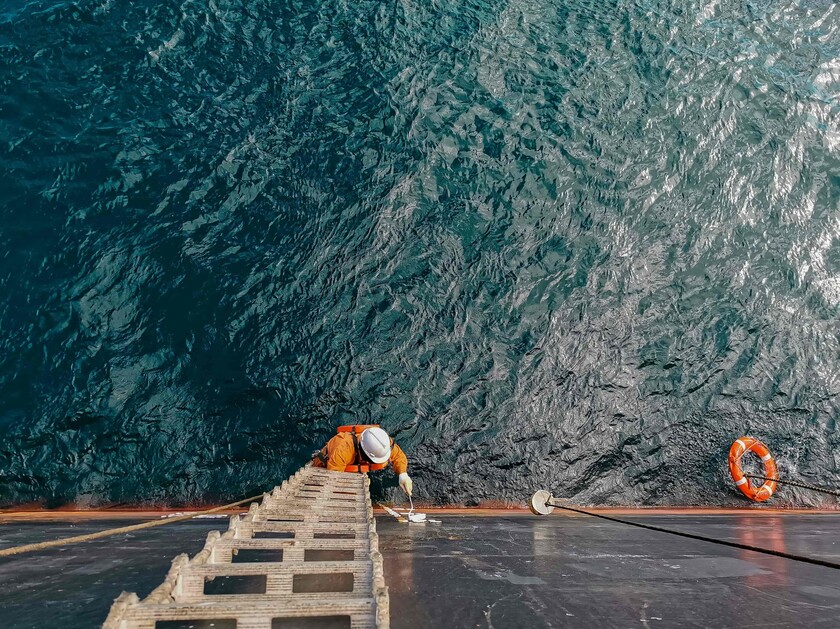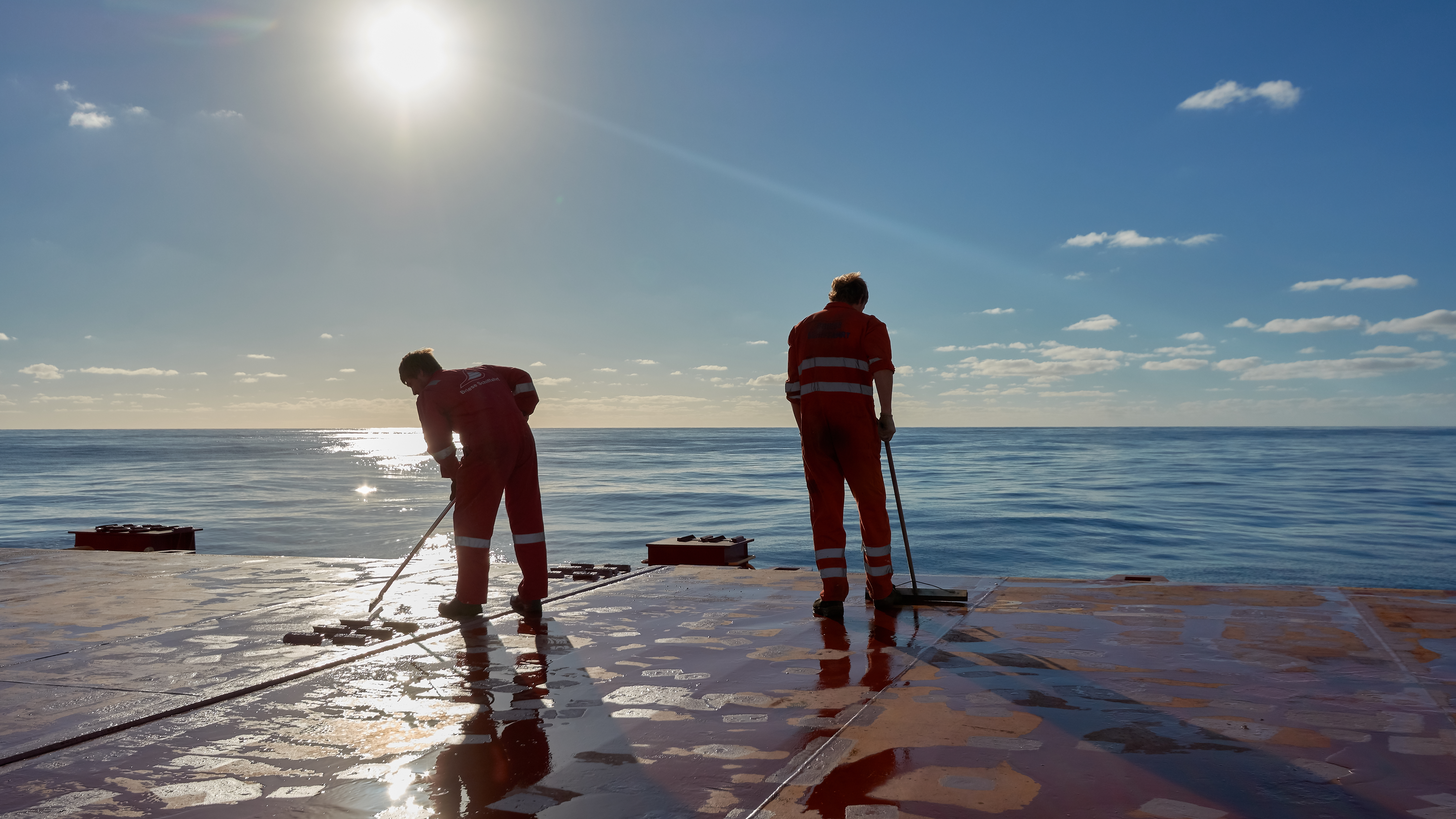ISWAN's Chief Executive Simon Grainge examines one of the key structural issues facing the maritime sector, which will also be the theme of ISWAN’s annual seminar in Helsinki next month.
The maritime press is awash with headlines about the sector’s accelerating recruitment crisis. In its Manning Annual Review and Forecast for 2023, shipping consultants Drewry warn that the seafarer labour market is the tightest on record, with the officer availability gap widening to an estimated 9% of the global pool, up from a 5% shortfall in 2022.
Concerns about the recruitment and retention crisis in maritime are not, however, new. In its first annual manning report, published back in 2008, Drewry had already sounded the alarm that the sector faced a substantial and worsening shortfall in officers. Furthermore, many of the causes, consequences and potential solutions identified in the 2008 report could easily have come from analyses of the recruitment and retention crisis today. Training infrastructure lagging behind supply needs, initiatives to develop pipelines in regions of the world not historically regarded as seafarer supply nations, and the shift in negotiating power from companies to officers as regards terms and conditions, are just some of the themes that continue to dominate commentaries on the supply gap 15 years later.
Whilst it is clear that the maritime sector is struggling to address some of the structural, long-term drivers of the officer shortage, it is nonetheless the case that more recent trends and global events have imbued the crisis with something of an existential dimension. Although the sector has largely returned to normal operating practices post-COVID-19, the pandemic has cast a long shadow, with many seafarers telling us that they are no longer willing to ensure such long separations from their loved ones following the hardships of the crew change crisis.
Likewise, the drive towards ever greater economic efficiency is undermining the attractiveness of seafaring for many, as reduced crew sizes intensify already heavy workloads and stress levels. Accelerated turnaround times in ports have solidified a longer-term trend towards greatly reduced shore leave, depriving many seafarers of the opportunity to relax and reenergise that is so crucial to maintaining good physical and mental health during long contracts.
The sector is also being forced to reckon with widespread abuses of power that are the shadow side of its traditionally hierarchical culture. Over-occurrence of abuse, bullying, harassment, discrimination and violence both contributes to attrition in the maritime sector, as well as posing a huge obstacle to safely diversifying recruitment to include greater numbers of women and others from historically marginalised groups.
With greater numbers appearing to be reconsidering their careers at sea, concerns about how the sector will recruit and retain the highly skilled seafarers needed to power the zero-carbon, increasingly automated vessels of tomorrow are well placed. Arguably, however, this moment of crisis also presents a real opportunity for the sector to reinvent its offer to current and prospective crew and to identify what it would take for modern, much more technically sophisticated seafaring to recapture the vocational appeal that it held for earlier generations. Economic competitiveness is often pitted against investment in seafarer welfare. However, if the true costs of skills gaps and high attrition rates are taken into account, there is arguably a strong economic case for developing new models that will address the root causes of the sector’s skills exodus.
Taking a solutions-focused approach to the maritime sector’s long-standing recruitment and retention gap will be at the heart of the ISWAN 2023 Seminar next month. We believe that what seafarers themselves have to say about the challenges that they face at sea and the solutions they see for the future should form the starting point for any conversations about the path ahead. For this reason, a panel of seafarers will provide a touchpoint for the day, providing insights into their personal experiences of what makes them feel valued and motivated in their work and what steps they believe companies could take to retain skilled crew more effectively. These discussions will provide the foundations for the remainder of the day, during which experts from across the maritime sector will share and debate potential solutions to a range of key issues that are fuelling the recruitment crisis.
Understanding what fair work means for the seafarers of today and how shipping companies and manning agents can bridge the gap between current working conditions and seafarers’ aspirations will be one of the core themes. Although seafarers’ legal rights under the MLC have strengthened in recent years, seafarers frequently tell ISWAN that in practice they feel that working conditions have nonetheless deteriorated. What crewing models could address the structural issues of excessive workload, inadequate rest hours, long contracts and lack of shore leave that are pushing so many seafarers to reconsider their future at sea?
Improving the maritime sector’s diversity strategy is often posited as key to addressing the recruitment crisis. However, although much is known about many of the sector’s challenges as regards diversity, equity and inclusion (DEI), the sector has arguably faltered when it comes to building on this knowledge base to implement practical measures that could bring about change. Bridging this gap between identifying obstacles to inclusion and developing and embedding effective solutions will be another key focus of the seminar. Reconsidering gender stereotypes and addressing the structural impediments to gender parity at sea is just one example of how maritime can look beyond restrictive ideas of ‘what makes a seafarer’ to make the profession truly accessible to a more diverse range of talents and backgrounds. Technological developments in maritime, including automation and remote monitoring and control systems, offer new and as yet largely untapped possibilities to deepen the sector’s commitment to DEI, if it is willing and able to seize the opportunity.
The impact of technology – both positive and negative – is the final key theme of the day for ISWAN’s seminar. As part of the push to achieve zero carbon, many seafarers are required to adopt alternative fuels and new operating systems at a pace which in some cases is outstripping the implementation of accompanying safety legislation and training infrastructure. What can maritime do to support the welfare of seafarers through these huge upheavals and ensure that the urgent need to decarbonise does not become an additional factor that pushes seafarers to leave the sector? Technological evolution may, however, also hold some of the keys to how the maritime sector can reinvent seafaring and restore its attractiveness in the digital age. Improved connectivity at sea is radically transforming seafaring by opening up new horizons in terms of bridging the physical distance with loved ones and providing many new possibilities for supporting seafarers’ health, wellbeing and ongoing professional development.
These are just some of the issues that the ISWAN 2023 Seminar will explore. Most importantly, however, the day will provide an opportunity for stakeholders from across the maritime sector – from shipping companies, to agents, to P&I clubs, to welfare charities, to researchers – to come together to identify potential solutions to the challenges that the sector faces. Collaboration and co-creation are at the heart of the seminar’s ethos, just as effective joined-up working between all those who are invested in seafarer welfare will be essential in ensuring that the sector can retain the skilled professionals that it will need to power the global fleet of the future.
ISWAN’s free seminar takes place in Helsinki on 16 November 2023. We very much hope that you will be able to contribute your ideas and solutions to the debate.






